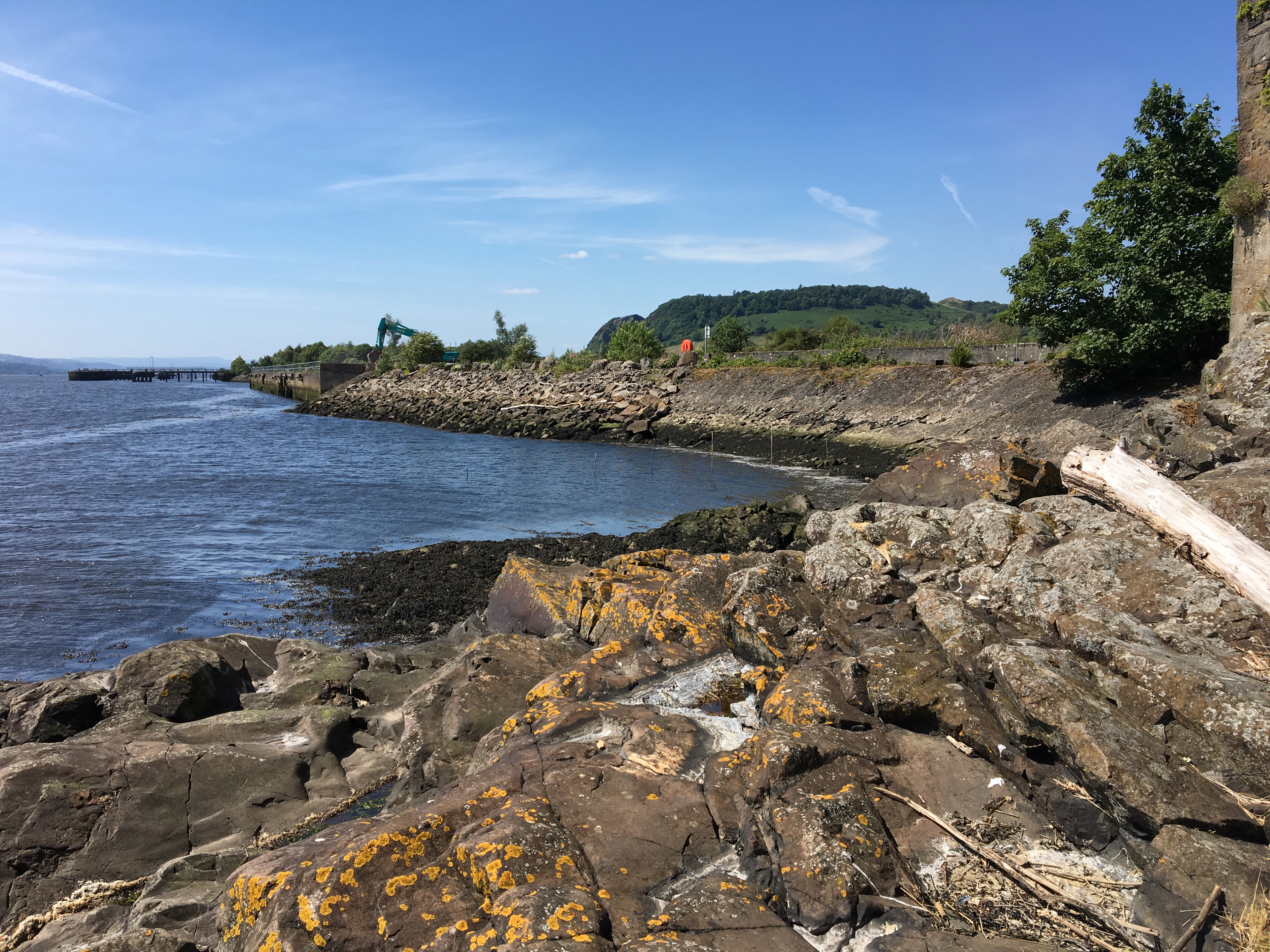selected item
Remediation works are set to begin at Bowling

James Hadwen is ExxonMobil’s Senior Project Manager for the remediation works. “Our work is relatively simple in many respects,” he says, speaking to Newsline. “It is essentially a large-scale civil earthworks programme to enable the redevelopment of the site. We're going to dig out some 200,000 cubic metres of soil, treat a portion of it to extract contamination using a novel soil washing approach, and then replace the clean material back into the ground.”
Delve a little deeper however, and the remediation work is not as simple as James describes! The site is mostly reclaimed land that borders the River Clyde and as the earthworks extend right to the edge of the site the project will have to deal with river and groundwater tidal fluctuations of up to 3m and the occasional storm that will make stability and water management a tricky business. A substantial section of the river edge will need to be physically removed and then replaced and finished with a new rock armour wall.
James explains that site access is challenging too. “There is only one vehicular access bridge to the site and to enable remediation works to take place, a temporary ‘Bailey bridge’ will need to be placed on top of the bridge which has a limiting weight restriction. This portable, prefabricated truss bridge - as used by the military in the Second World War to cross rivers – will unfurl to take the weight of all of the trucks and equipment entering and exiting the site, leaving the original bridge structure uncompromised,” he says.

“This work has the potential to generate odour, dust and vibration which we will need to manage along the way too, in order to respect both the environmental regulations and the needs of the local residents bordering the site.”
A remediation contractor and an environmental consultant will support James on the project, which will see 15 to 35 people on site during the process. Measures will be put in place to mitigate odours and noise caused by treatment works and James stresses the importance of rolling out a pro-active communications plan to ensure nearby residents and stakeholders are kept informed.
Works were originally due to begin a year ago, but have been delayed due to COVID-19. However, James says that the delays have given him an opportunity to modify the project, having joined the team after the initial design work had been completed. “The groundbreaking work is now likely to start in July and will run for two and a half years, but there are many things that could affect that timeline, not least the potential for further travel restrictions or lockdowns in Belgium and France where the site contractor comes from.”
There are also the added complications of operating a COVID-safe environment. He adds: “We need to ensure support services, such as geotechnical and analytical laboratories are open, and we’ve adjusted our shift pattens to take account of travel restrictions, quarantines and Brexit licensing complexities too. We need to have COVID testing for the team and social distancing for the office areas on site. Important consideration and careful management of communal decontamination areas including showering, dressing and changing facilities will be needed too.”
James sums up the project nicely when he concludes: “All the devil is obviously in the detail.” Newsline will catch up with him again later this year to find out how things progress.
Also in this issue

Travis takes the helm as RRT Coordinator
Travis Hansen, regional EP&R adviser has been appointed to lead the Regional Response Team (RRT) following the retirement of Mark Wentworth (see Newsline April 2021). “I’ve been involved with the RRT since 2013 and when Mark retired, I felt I could do something to build on the amazing job he’s done and bring my own energies to the role,” he says.
PIGs in the pipeline at FEP
This is not your usual PIG – this is a Pipeline Inspection Gauge, a specialist robot that checks and cleans oil and gas pipelines from the inside to keep them running safely, using a process known as ‘pigging’. As part of the £140m plant investment programme now underway at our Fife Ethylene Plant, we are pigging the 7km of pipes that link the plant to our Braefoot Bay Marine Terminal on the Forth.
Fawley helps in COVID-19 fight
As the battle against COVID-19 continues, ExxonMobil Fawley has become a key player in the global vaccine supply chain. The site’s Chemicals units are responsible for supplying a range of products including halobutyl rubber, a component of the vaccine vials.
Helping Hampshire’s Search & Rescue Heroes
Hampshire Search and Rescue is one of the latest voluntary organisations to receive a donation from the ExxonMobil VIP scheme. £500 was awarded to the charity, which works alongside Hampshire police in searching for vulnerable high risk missing persons in the county. The team has been called out 30 times so far this year and the donation will go towards new lifejackets for river bank searching.
FAST – preserving the future
Although Fawley’s FAST project has been temporarily postponed, work continues at pace to ensure the project is well placed upon restart. Newsline has spoken to Yuri Cordy, project manager to discover what’s been happening to store and preserve the equipment already procured.


